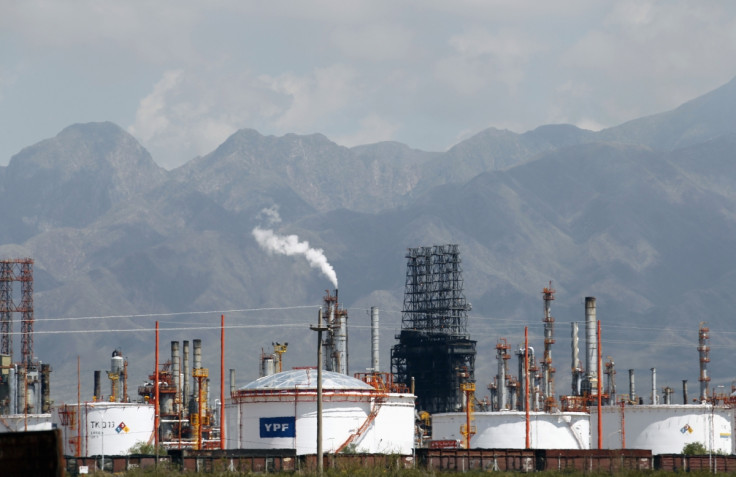Repsol to Ink $5.5bn Settlement With Argentina Over YPF Nationalisation

Spanish oil company Repsol will agree on a dispute settlement with Argentina's government over the country's nationalisation of energy company YPF, in which Repsol had a majority stake.
Reuters citing a source involved in the talks reported that Repsol will receive various bonds with a total nominal value of around $5.5bn (€4bn, £3.3bn) as per the terms of the settlement. That includes already-issued Argentine dollar-denominated bonds and a new ad-hoc 10-year bond worth $3bn.
"The important part of this deal is that Argentina recognises $5bn of debt to Repsol over the expropriation," the source told Reuters.
The agreement still requires the approval from Argentina's Congress and from Repsol's board and shareholders. The company's board is due to discuss the matter on February 25.
Earlier, people familiar with the negotiations told the Financial Times that a Repsol delegation was in Buenos Aires to complete the agreement in the coming days.
Nationalisation
Argentina's nationalisation of YPF in May 2012 was a severe blow to the Spanish oil company, as its operations in Argentina represented a fifth of its annual net profit and almost half of its proved reserves at that time.
Subsequently, Repsol filed a lawsuit in an international arbitration court, claiming $10bn from the Argentine government for its loss.
Analysts had cautioned that the result of the litigation is uncertain and may take many years to get a final ruling.
Given the conditions, the company board is expected to accept the settlement terms.
From its part, Repsol will agree to abandon its legal challenge against Argentina and against other energy groups such as Chevron under the settlement terms.
For Argentina, the settlement offers another chance to rebuild its credibility among international investors.
Following the country's economic collapse in 2001-2002 and its currency's devaluation, Argentina has found it nearly impossible to attract international investors into the country.
The country has been suffering from a capital flight and dollar shortage since 2011, making it difficult to legally trade pesos for US dollars.
© Copyright IBTimes 2025. All rights reserved.






















